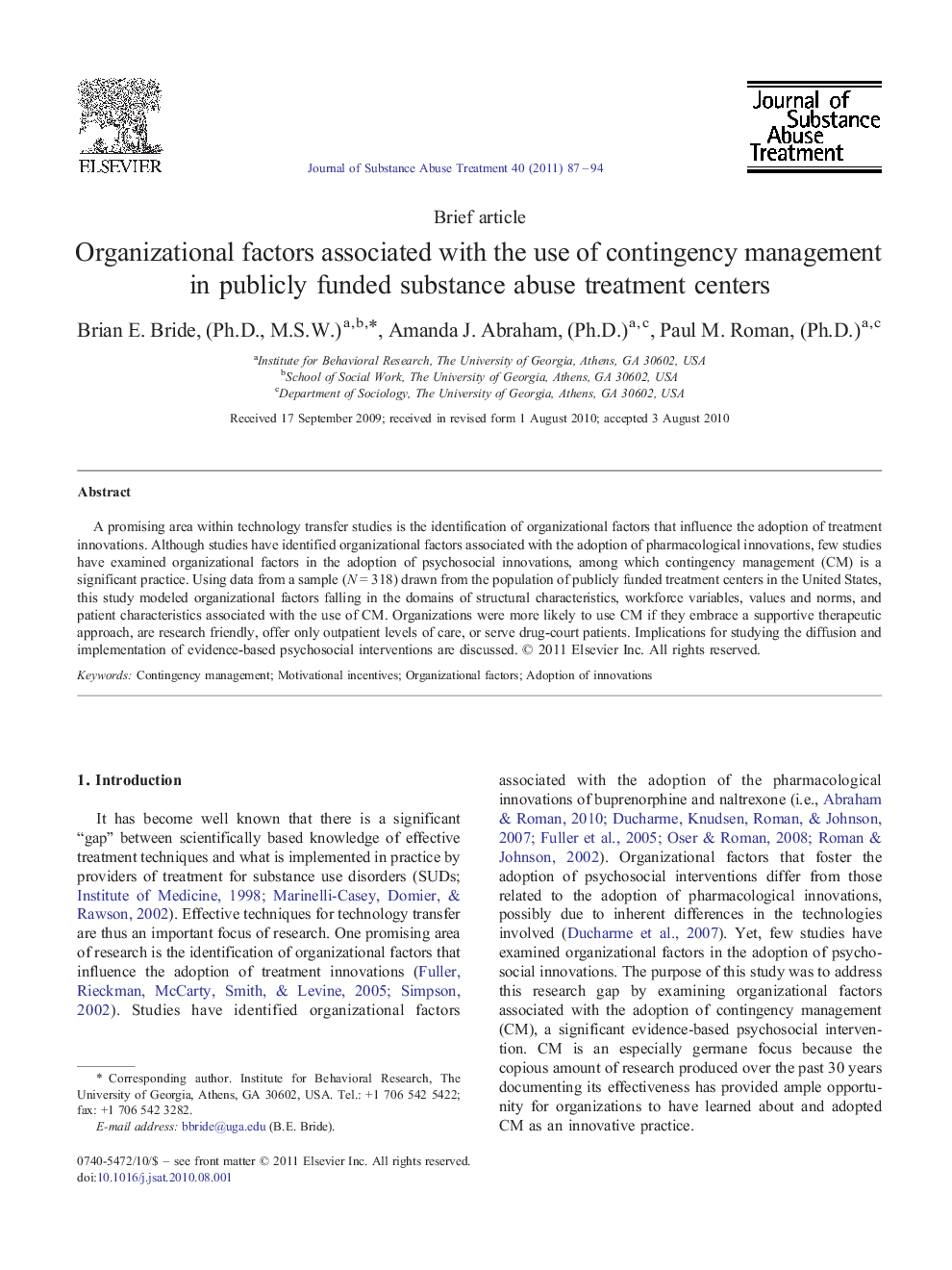| Article ID | Journal | Published Year | Pages | File Type |
|---|---|---|---|---|
| 329820 | Journal of Substance Abuse Treatment | 2011 | 8 Pages |
A promising area within technology transfer studies is the identification of organizational factors that influence the adoption of treatment innovations. Although studies have identified organizational factors associated with the adoption of pharmacological innovations, few studies have examined organizational factors in the adoption of psychosocial innovations, among which contingency management (CM) is a significant practice. Using data from a sample (N = 318) drawn from the population of publicly funded treatment centers in the United States, this study modeled organizational factors falling in the domains of structural characteristics, workforce variables, values and norms, and patient characteristics associated with the use of CM. Organizations were more likely to use CM if they embrace a supportive therapeutic approach, are research friendly, offer only outpatient levels of care, or serve drug-court patients. Implications for studying the diffusion and implementation of evidence-based psychosocial interventions are discussed.
